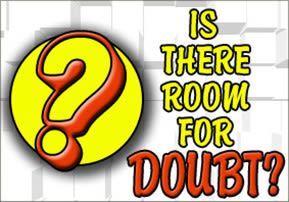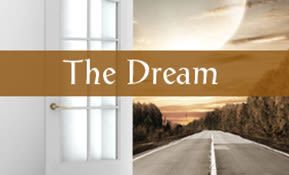
Is There Room for Doubt?
Rabbi Brody fields some sticky questions from a sincere truth-seeker that wants to know if there’s room for doubt. Has the Torah been filtered through human hands?

Dear Reb Lazer,
Thank you so much for your Breslev Israel English website. It has become my weekly oxygen.
One thing that I've always loved about my Jewish heritage is the room within it for doubt. It makes me feel at home in an odd sort of way, and yet to hear you speak I almost feel as if I should feel or think differently.
I do not wish to sound at all offensive, but I have a hard time relating to much of the text of the siddur and even tehillim. And again, I deeply do not wish to offend you or anyone, but to me even the Torah seems filtered through human hands. And while I understand and love some mitzvot, others seem empty. Perhaps this is just normal for everyone on some level. I love my Shabbat table more than I can say, and try never to speak ill of others, but I feel almost negative in synagogue and so don't go very much at all, and many (or honestly most) other mitzvot seem arcane and foreign. I'm not even quite sure what I'm asking; I try not to let this disturb me, but lately it has more so. Does HaShem require faith? Does one need it? And what is it faith in? If I talk myself into it, is it not a created thing? Just asking these questions both helps and pushes me away.
Maybe though what I really wanted to write you is just a thank you for your writings of really heartfelt love for your fellow Jew. Rabbis like you bring people like me a little closer. Yours, Richie from California
* * *
Dear Richie,
Thank you for your most poignant letter. I'm touched by your level of honesty and search for the truth. When a person searches for the truth, he or she will eventually find it. In the course of soul-searching, you desire answers that quench your soul's thirst; you therefore never have to apologize about sounding "offensive". If someone is offended by your superb questions, then their own faith is probably on shaky ground.
Richie, you've given me a handful. I could easily give a two-hour talk on any of the above six points. But, I don't want to leave you hanging, so with Hashem’s help and the limited amount of time to my disposal, I'll try to give you some food for thought about each of the above points.
You've raised six essential issues, as follows:
1) The relationship between prayer and faith – is there room for doubt?
2) You have a hard time relating to Prayer Book and Psalms.
3) The Torah seems to be filtered down through human hands.
4) You feel negative in shul (bored, unsatisfied, and disinterested).
5) Some mitzvot seem empty, archaic, and foreign.
6) Does Hashem require faith? Does one need faith? Is it a created thing that we talk ourselves in to?
Point one: Prayer does seem silly and a waste of time without faith. Richie, there is always room for doubt. A truth seeker should daily examine his or her own belief system, for the most tragic thing in the world is to live your life as a lie. The reason that many elderly people refrain from true soul-searching and penitence is that they're afraid they might discover something that retroactively proves they've been living a lie. So, do as much self-evaluation and soul searching as possible today, while you're still young.
If you search for Hashem, you'll find Him. I don't think you're naive enough to think that the California State Power Company generates your heart and lungs. When we feel that Hashem personally massages each heart beat, we establish a very close personal relationship with Him. I thank Hashem every day for the 100,000 times my heart beats and for the 20,000 times my lungs breathe. Why? Each breath and heart beat are the most valuable physical assets I have. Therefore, I find myself with constant feelings of gratitude toward Hashem. And, the more I speak to Him the better I feel. Marty, when you get tuned into sincere, personal prayer, you also get the answers. Once you really talk to Hashem, you feel sick if a day goes by without personal prayer. The more you feel Hashem, the more you'll strengthen your faith. When faith is strong, prayer is both meaningful and a sublime pleasure. So, if you feel silly about prayer, you're doing something wrong.
Point two: You have a hard time relating to the Prayer Book and the psalms because you haven't learned to understand them. I too couldn't relate to a prayer that I couldn't understand. Let me give you an example: I can't say Psalm 23 with dry eyes, because when I say "when I walk through the valley of death, You are with me" – I feel it, Richie. I feel all over again that Hashem is saving me on Mount Hermon on Yom Kippur of 1973 or in Beirut of 1982. I feel a dozen situations of Hashem protecting me from certain, imminent death. The simple blessings we say each morning for me aren't so simple; in Beirut, I was sure I lost an eye. Hashem gave it back to me as a present. When I say, "pokeach ivrim", blessed are You my Lord for letting me see, I have to control myself not to jump up and down in the synagogue. Again, you must make each prayer and Psalm come alive for you. Our problem is that we're ever so willing to let our bodies come alive, but we're constantly subduing the soul. Let your soul express itself, and you'll soon relate to the liturgy too. BTW, don't be satisfied with the prayerbook – say your own personal prayers in your own language.
Point Three: Richie, be honest, this is a cliche. If you were an earnest student of Talmud, Kabbalah, and religious law, you wouldn't make such a statement. In order to understand the nature of the Oral Law, one must learn with dedication. Were you to express an opinion about the weird-looking design of a helicopter without having learned aeronautical engineering, you'd appear foolish. Same here. Start learning Torah, and come back to me with this question in a few months.
Point four: You feel negative in synagogue because either you don't know what's flying, or else the synagogue you now attend is a center of rote religion and weak or insincere worshippers. Rote religion is the biggest waste of time on earth. So, I suggest you strengthen the things we spoke about in point one (above), and find yourself a fervent rabbi with a small, earnest prayer group, and deepen your understanding of what you're saying.
Point five: There are 613 commandments in the Torah; correspondingly, there are 613 parts of the physical body and 613 parts of the material body. Doctors used to think the tonsils, adenoids, and appendix were needless. Statistics show that people with these parts of their body removed stand much higher chances of disease. Just because doctors don't understand that the tonsils play a role in guarding against infection doesn't mean that the tonsils are useless. In that vein, we need each commandment for the spiritual health of that part of our soul that receives its vitality from its particular corresponding mitzva. Again, you must learn Torah to appreciate each mitzva. If you've never learned mechanics, you can't appreciate the importance of each part of the engine.
Point Six: Hashem doesn't require faith – our own souls require faith! You categorically cannot live a life of emotional health, tranquility, and inner peace without faith. You're not doing Hashem a favor; you're doing yourself a favor. If you feel like faith is something you're talking yourself in to, then you're both barking up the wrong tree and closing your eyes to the magnificent world that surrounds you. Try thinking about the myriad of gifts that Hashem gives you every day.
Richie, Hashem will take you wherever you want to go. If you look for Hashem, then you’ll find the path to truth. May Hashem illuminate your heart always. Yours with blessings, Lazer Brody

If you look for Hashem, then you’ll find the path to truth.







Tell us what you think!
Thank you for your comment!
It will be published after approval by the Editor.